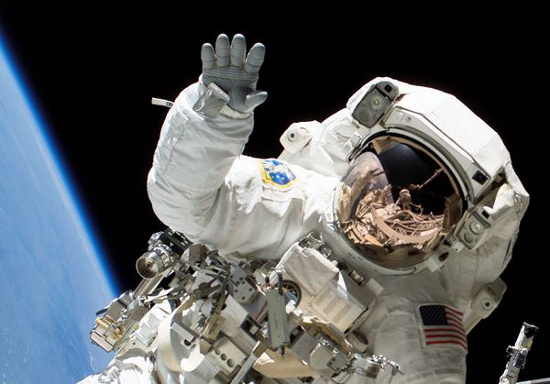Risk of Alzheimer's disease in astronauts
US researchers say that exposure to radiation in space can increase the development of Alzheimer's disease in astronauts, according to UPI news agency.
The author of the study, Dr. M. Kerry O'Banion at the Department of Neurology and Anatomy of the University of Rochester Medical Center (USA) and colleagues said, space is full of radiation, but from Earth's school often protects the planet and the human race.

New findings could threaten future missions to Mars - (Photo: NASA)
However, once the astronauts leave their orbit, they must be exposed to a continuous rain of radiant particles, and the more astronauts go into space, the greater the exposure.
Part of the study was done at the Space Radiation Laboratory of the US Space and Aeronautics Agency (NASA) at Brookhaven National Laboratory on Long Island, New York, to take advantage of particle accelerators. , which by letting matter collide at high speed to create radiation particles that are found in space.
At Brookhaven, mice were exposed to various radiation doses, including levels comparable to what astronauts experienced in a mission to conquer Mars.
Animals then undergo tests, in which they must remember to place objects in certain locations.
The study found that the mice were mostly unable to do the exercises. They have nerve damage earlier than when these symptoms appear.
Their brains also show signs of vascular changes and a greater buildup than beta amyloid, which is linked to Alzheimer's disease.
"This finding clearly shows that radiation exposure in the universe could speed up Alzheimer's disease ," O'Banion said.
The research results are published in the journal PLOS ONE.
- Risk of cancer in people with gum disease
- Astronauts need to eat a lot of fish
- Dog keeping helps reduce the risk of heart disease
- In a zero gravity environment, do astronauts get sick easily?
- New findings on the risk of infection 'mad cow' in humans
- Calcium supplementation does not increase the risk of cardiovascular disease in women
- Diagnose through appearance
- An additional 13 gene variants increase the risk of heart disease
- Some vegetable oils increase the risk of heart disease
- Erectile dysfunction and cardiovascular disease
- Big neck - high risk of heart disease
- High risk of heart disease and cancer
 Green tea cleans teeth better than mouthwash?
Green tea cleans teeth better than mouthwash? Death kiss: This is why you should not let anyone kiss your baby's lips
Death kiss: This is why you should not let anyone kiss your baby's lips What is salmonellosis?
What is salmonellosis? Caution should be exercised when using aloe vera through eating and drinking
Caution should be exercised when using aloe vera through eating and drinking